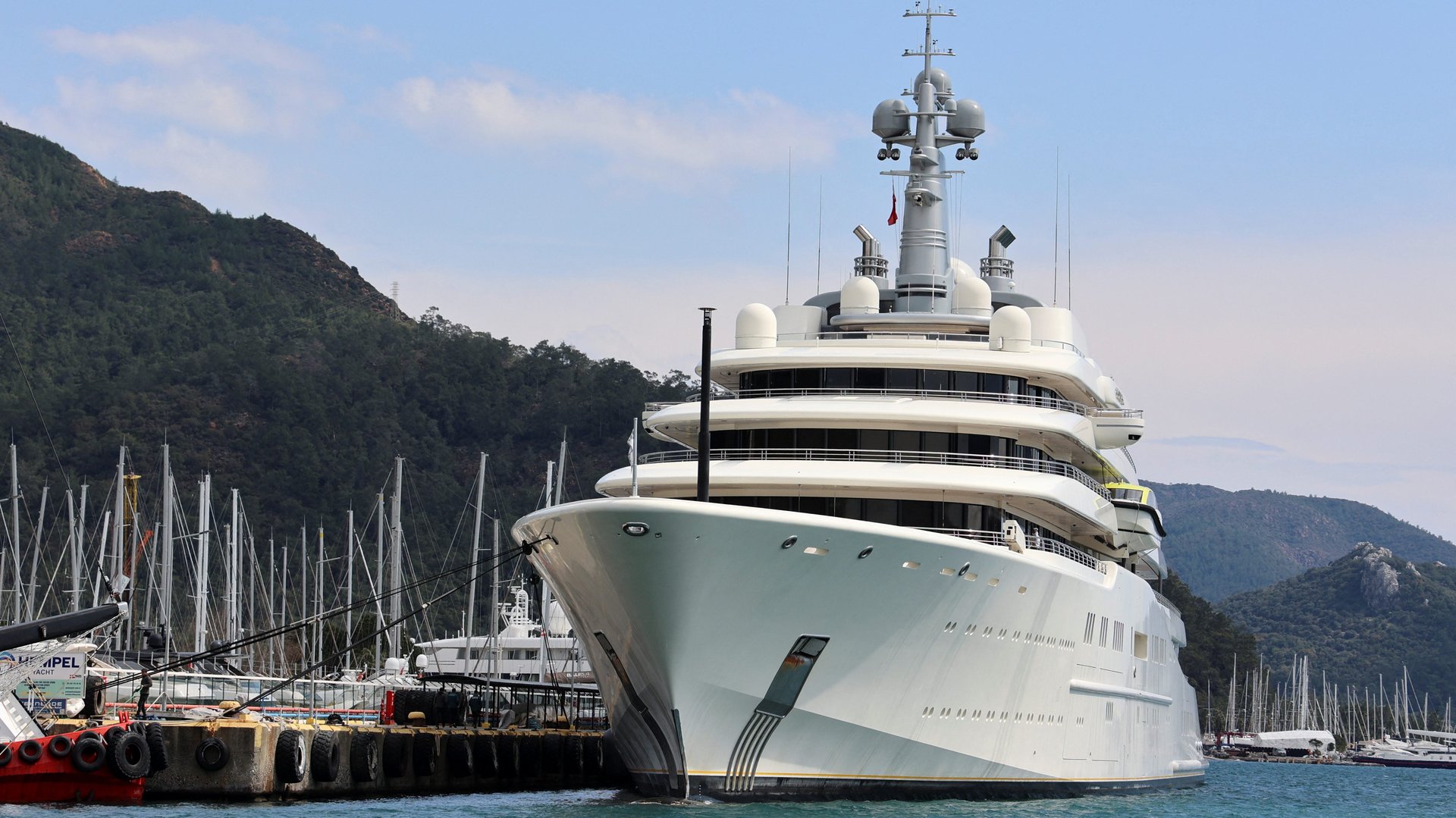Russian oligarchs are finding ways to avoid Western sanctions
Russian oligarchs targeted by the West over their connections to president Vladimir Putin are finding ways to evade sanctions by moving their assets elsewhere, whether docking their yachts in sanctions-free countries or keeping property concealed in hard-to-access trusts.


Russian oligarchs targeted by the West over their connections to president Vladimir Putin are finding ways to evade sanctions by moving their assets elsewhere, whether docking their yachts in sanctions-free countries or keeping property concealed in hard-to-access trusts.
The moves show how oligarchs have learned to keep their wealth protected, even as Western allies are stepping up efforts to crack down on Russian riches after Putin’s invasion of Ukraine.
Abramovich looks to Turkey
The UK sanctioned Roman Abramovich on March 10 over “clear connections” to Putin’s regime, citing (pdf) the billionaire’s close relationship to the president and his stake in the steel company Evraz, which may supply materials to the Russian military.
Four days later, a jet linked to Abramovich arrived in Istanbul from Tel Aviv. As of today (March 22), two yachts linked to the oligarch worth more than $1 billion are docked in resort towns in the south of Turkey, according to Reuters. An Ankara source told the wire service Abramovich and other wealthy Russians are considering investing in the country.
Though Turkey is a NATO member, it has resisted sanctions over fears they would harm its own economy. The country gets a third of its natural gas supplies from Russia, and exported more than $4 billion worth of goods there in 2020. In recent days Russians have reportedly shown up to Turkey with cash in hand to trade, though banks are wary of taking on Russian clients.
Usmanov’s assets kept in trusts
A spokesman for Alisher Usmanov, an investor with stakes in Russian iron and steel giant Metalloinvest and the mobile network MegaFon, told The Guardian most of his UK property and his yacht were “long ago transferred into irrevocable trusts.” Once the transfer occurred, the spokesman said, Usmanov didn’t own the assets, and he turned over the beneficiary rights to family.
The spokesman was responding to questions about an investigation by the Organized Crime and Corruption Reporting Project (OCCRP), which reveals more than $3 billion worth of assets linked to the Uzbek-born Usmanov.
Irrevocable trusts, which can’t be modified without a beneficiary’s permission, are attractive to sanctions targets, said Joshua Ray, a partner at the UK law firm Rahman Ravelli. If Usmanov’s assets are in a trust in which he lacks any ownership or control, “he could effectively shield those assets from the UK’s sanctions.” And if Usmanov transferred assets into a trust before the invasion of Ukraine, he could now easily move them into a complex ownership structure that’s even more opaque.
“There is no doubt that many recently-sanctioned parties, or parties who fear they might soon be sanctioned, are working hard to shield their assets as much as possible,” Ray said. Keeping up with the “sheer number of asset flows” occurring while individuals such as Usmanov move to hide their money may be a “tall order” for Britain’s sanctions regulator.